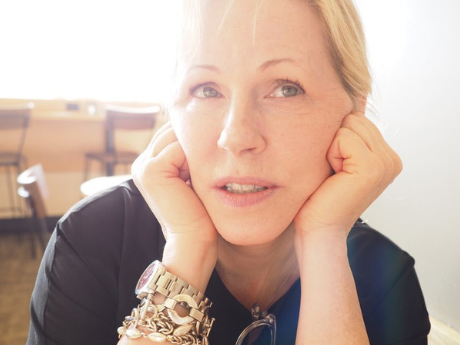Q & A: American Poetry
Q & A American Poetry: Susan Wheeler

I am wholly subject to the hubris that afflicts us American, non-native poets: the faith that we can strike out on our own, manifest our ideals, borrow like any avid plunderer from traditions rather than revise upon or disrupt a tradition that is our (right?) inheritance . The hubris gives us the illusion that expansiveness and inclusiveness is possible—as is the realizing of the deepest, most hidden self, either in language or in the rigorous application of language systems. We can believe in the successful outcome of striving—for oneself and for others—and in the efficacy of hope. When these beliefs do not bear out, we suffer bitterness and betrayal other cultures reserve for love. Illusory or not, these byproducts of our hubris give American poetry at its best astonishing vigor, argumentativeness, gravity, and grace.
I also think most American (transplant) poets have shared a fascination with the American English idiom, with its vernaculars—in every permutation from "ain't no barn round here" to "yo" to the borrowings from the many languages that exert pressure on the English language within our borders. The slangy cadences of Dr. Seuss rhymes infected me—so different from the Britishisms of Mother Goose—and to read the Opies on English children's rhymes makes clear the Atlantic divide between each populace's earliest language imprinting.
So I do see myself, for better or worse, as an American poet, and as within, for better or worse, an American tradition. But it does not follow that all American poets sign on as willingly—many have toiled against the hubris and idealism and isolation that mark this construct, and have fashioned poetries that draw on original cultures (I include European and English among the myriad of the "multi"); that deny, with irony or resignation, a supra-striving; that adopt qualities we know as "classical" or "Romantic" and plumb them fully. This "diversity" was the case from the U.S.'s incorporation onward and is perhaps inherent in our cultural adhesion to autonomy.
A postscript: Sometimes I think we as Americans are such rubes. We see diversity only in quantifiable variables—for us, race and culture, very rarely class—and attach phrases like "political correctness" to the development of a just self-consciousness on the part of the powerful. The more subtle variables of style, allegiance, class—those we inherit and those we try to choose—are then elided, so that diversity becomes equated with racial representation, and phrases like "political correctness" connote nothing but the rhetorical. Within poetry's purview, idealist American that I am, I see the re-complicating of words and phrases which have become hollow and rhetorical—I must correct tic and pol!
Published 1999.


